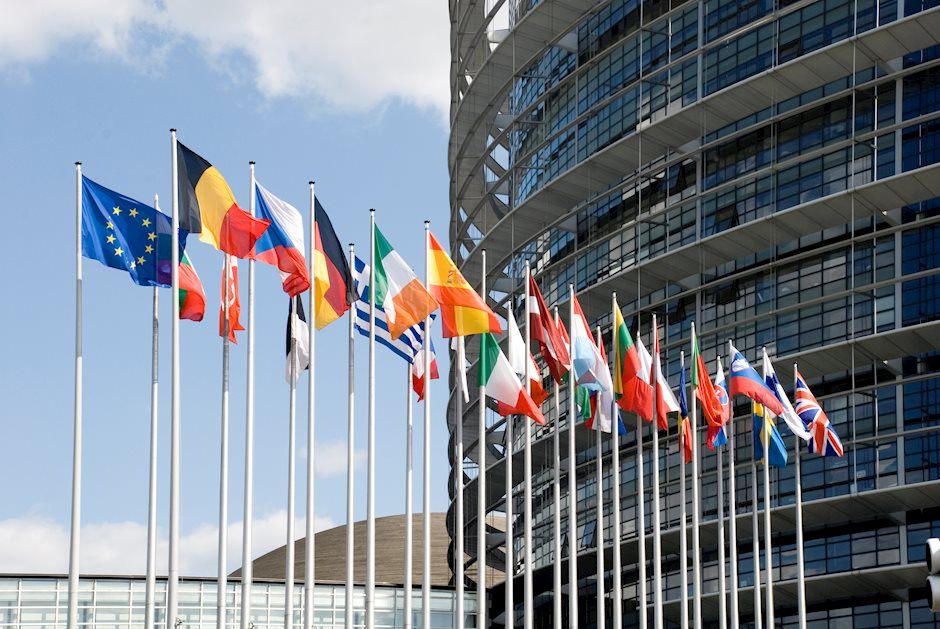The Eurozone returns to fiscal prudency

The just-announced start of Excessive Deficit Procedures for five eurozone countries – including France and Italy – and two non-eurozone countries does not only illustrate the return of fiscal discipline but could also once again test political cohesion in the monetary union.
The budget discipline holiday in Europe is over. While apparently the European Commission didn’t want to influence the European elections, it will now very likely affect the French national election campaign with the just-announced start of the so-called Excessive Deficit Procedures (EDP) for five eurozone countries and for Hungary and Poland outside of it. In the US, deficits continue to run between 6 and 7% of GDP, but the European Commission is tightening the screws on European countries.
The EDP is part of the European Treaty and is not just an element of the often changing fiscal rules in the eurozone. According to Article 126 of the European Treaty, the European Commission can start an EDP if a country has breached or is at risk of breaching the 3% of GDP fiscal deficit threshold, or if a country has a government ratio of above 60% of GDP that is not diminishing at a ‘satisfactory pace’. Eventually, if countries do not comply with the agreed path of correction, they could end up paying half-yearly fines amounting to 0.05% of GDP until they are compliant – although this famously has not happened so far.
What does the European Commission say?
The Commission has assessed the deficit criterion for 12 of the 27 member states. This includes 10 countries in which the deficit exceeded 3% of GDP in 2023, and two – Finland and Slovenia – for which budgets are expected to exceed the deficit rule for 2024. In Belgium, France, Italy, Hungary, Malta, Poland and Slovakia, the Commission expects deficits not just to have been too high in 2023 but also in 2024.
The Commission can take mitigating factors into account though, if debt is below or modestly above 60% and if deficits are close to the 3% limit. This is the case for Finland, Slovenia, Slovakia, Czechia, Poland, Estonia and Malta, of which only Malta and Poland will actually see an EDP opened as mitigating factors for the four others were significant enough for the Commission to not open an EDP. This mainly relates to the temporary nature of the deficit judging from EC forecasts, but also to increases in defence spending and compliance with EU recovery fund reform and investments.
For France, Italy, Spain, Belgium and Hungary, relevant factors cannot be taken into account given the above mentioned conditions. This results in an EDP for all countries except for Spain, which is expected to have a deficit not exceeding 3% of GDP in 2024 and 2025 without further budgetary actions taken, rendering further action unnecessary according to the Commission.
Following this, the Council in the form of the Economic and Financial Committee will have to formalise the decisions on EDPs in mid-July. After this point, the next relevant date will be 20 September – when countries will have to hand in their proposals for corrective paths to adjust their budgets.
A political warning shot, but not without risk
Remember that the fiscal rules were suspended during the Covid-19 pandemic and are now being reapplied after being reformed, including clauses giving more leeway for defence investments, as has become clear from the relevant factor assessment. Today’s announcement will not only have fiscal implications but will also test political cohesion in the monetary union, and will eventually be of relevance for the European Central Bank.
When it comes to fiscal policy, today’s announcement marks an end to almost unlimited fiscal stimulus. Even if the reformed fiscal rules provide more room for investments, the European Commission’s announcement underlines that these investments should rather come instead and not on top of other expenditures. At a time when Europe and national governments are facing increasing support for populist parties, with often highly expensive economic policy proposals, the EDP announcements could add to political tensions. Eventually, it could also lead to tensions within the monetary union if one or more member states do not comply with the proposed correction path.
Regarding financial markets and the ECB, the EDP announcement clearly brings debt sustainability back on markets’ radars. Over recent years, the focus has almost exclusively been on growth (or lack thereof). The snap elections in France had sparked renewed concern about debt sustainability in some of Europe’s major markets, and today’s announcement could add to those concerns. Up until now, the widening of bond yield spreads has not caused any worries at the ECB. However, a further escalation and widening of spreads will eventually raise the question of whether the central bank would ever start its so-far untested Transmission Protection Instrument from 2022 – a bond buying programme to shield countries against an unwarranted widening of spreads which is conditional on countries complying with European rules, including EDP recommendations.
All in all, the European Commission’s EDP announcement is essential for the Commission to demonstrate that the (new) fiscal rules do have teeth. It is also a political warning shot to governments that despite high investment needs and weak growth, the times of unlimited fiscal stimulus are over. This is a warning shot that is not without risk, as it could eventually threaten political cohesion within the monetary union if any of the countries on the penalty bench refuse to sit down.
Read the original analysis: The Eurozone returns to fiscal prudency
Author

ING Global Economics Team
ING Economic and Financial Analysis
From Trump to trade, FX to Brexit, ING’s global economists have it covered. Go to ING.com/THINK to stay a step ahead.

















